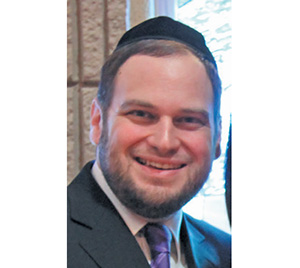

When I learned in yeshiva in Israel some 25 years ago, I was told by a native Israeli that if one wants to get the pulse of the country, speak to a cab driver. I write this article somewhere over the Atlantic Ocean on my return flight from Israel. One of my goals for this trip was to gain a newfound understanding and appreciation for the role of Yerushalayim in our minds and hearts, as we celebrate the 50th anniversary of its reunification. And so, one morning, I found myself in Shmulik Dhalika’s cab on the way back from the Kotel. I had rented a car, but staying true to the advice I was given nearly a quarter of a century ago, I had to take a cab at least a few times until I succeeded in getting that pulse I was still pursuing. I wasn’t surprised that he wasn’t wearing a kippah, but a bit excited when he responded to my question asking him how he was by saying “Baruch Hashem.” Shmulik told me that he was a fourth-generation Yerushalmi, that his family had lived in the city for decades, and there was nothing like driving a cab in Yerushalayim. When I mentioned that I was sure the upcoming 50th anniversary would be great for business, he said “Be’ezrat Hashem.” What was so special about driving a cab in Yerushalayim? Was it the tourists, I inquired? “No,” answered Shmulik, “it’s the merit of seeing all of the Jewish people return home.” “Look,” he told me, “do you see all the construction? Do you know what has happened to Yerushalayim? Everyone wants to live here! Even those who only visit for a few days know that they have come back home. Have you read the Neviim?” He asked me to look at what is happening around us. “And I have the honor of seeing all of this and transporting people all over the holy city during this time. I have the greatest job in the world!” Shmulik said with great pride.
The planning is clearly underway on the streets of Yerushalayim for the historic celebration of the 50th anniversary of the city’s liberation. I have been trying to internalize and understand what makes this city different from all others. It is the foundation of Hashem’s rule of the world. Yerushalayim is Hashem’s home where He told us his presence would dwell, emanating from the Beit Hamikdash and beyond. Is there more to the nature of Yerushalayim beyond the surface? Perhaps it’s the mystery behind Yerushalayim. The Torah itself never mentions Yerushalayim by name; it is alluded to, almost as if Hashem is revealing to us that there is something secretive about this city. David Hamelech says in Tehillim that it is a city that is “chubra la yachdav.”
Chazal explain these words to mean that a heavenly Yerushalayim exists that corresponds to the earthly Yerushalayim. Another explanation that Chazal offer is that Yerushalayim has the incredible power to unite us as a people. We strive to cling to this holy city because there is something that it represents that we as individuals truly want. We spend our lives searching for a sense of authenticity and peace with others and with ourselves. Perhaps Yerushalayim’s name is not mentioned but only alluded to in the Torah because this characteristic of Yerushalayim is not simply found. We seek it at times on a very deep level because at the core of our existence is the desire to live lives free of fear, pain, worry, strife and sadness. We seek courage and hope, inner peace, and an ability to engage with a sense of brotherhood and sisterhood with others. That is what Yerushalayim represents to all of us. We are a blessed generation as Hashem has brought us closer to the pursuit of that ideal life by returning the Jewish people with its own sovereignty back to His holy city, back to the heart of the nation and the home of Hashem’s presence. Rashi explains that Hashem formed Adam from the earth of the place where the Mikdash resides, which means that each of us has our roots in Yerushalayim. When we converse with people there are many times we wonder what they really feel in their heart. Even in our closest of relationships it is sometimes difficult to know what a person truly feels in their heart. The heart is a difficult place to find. The Jewish people have returned to its heart with Hashem’s incredible kindness. We celebrate this historic moment in our nation’s history by personalizing the deeper meaning of Yerushalayim to each of us on an individual level. For Shmulik, Yerushalayim is bustling with business. This business is not limited to a monetary benefit. Its value is far greater. As we celebrate Yom Yerushalayim, let us commemorate the deep meaning of Yerushalayim that lies within us. May our eyes merit to see its complete restoration speedily in our times.
By Rabbi Eliezer Zwickler
Rabbi Eliezer Zwickler is rabbi of Congregation AABJ&D in West Orange, New Jersey, and is a licensed clinical social worker in private practice. Rabbi Zwickler can be reached at ezwickler@gmail.com.








